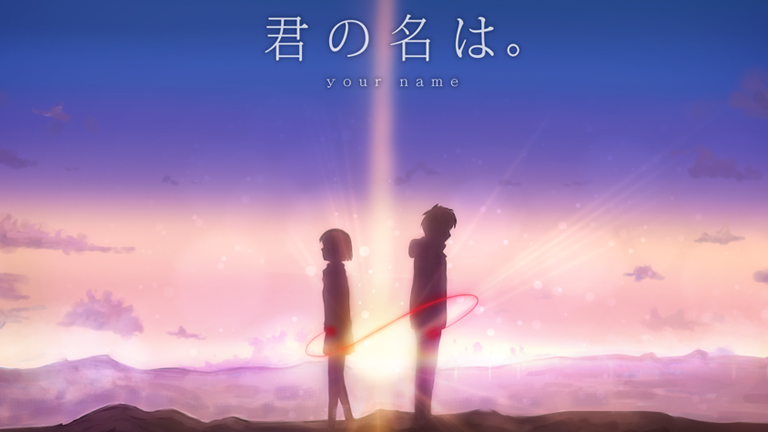Big Screen: Makoto Shinkai’s Your Name
January 6th 2017
James Ross

Makoto Shinkai has been called the next Hayao Miyazaki by a lot of critics, and it makes sense.
His beautifully drawn films have the same exhaustive attention to detail that made audiences fall in love with movies like Howl’s Moving Castle and Spirited Away. Your Name testifies to this statement.
The only problem with this claim is that, unlike Miyazaki, Shinkai’s back catalogue is filled with flops. His past films tend to rely heavily on animé tropes that Westerners find uncomfortable.
With Your Name, however, Shinkai proves his worth and is ready for Miyazaki’s crown. It’s a nice riff on the classic body-swap comedy, which keeps the story feeling fresh despite the stale premise. The film centres on teenagers Mitsuha and Taki, who come from opposite ends of Japan. Mitsuha lives in a traditional town with limited prospects, and desperately wants to escape. She awakens one morning to discover her mind is occupying the body of Taki: a boy whose life in Tokyo couldn’t be more different from hers.
Once returning to her regular life, she realises that Taki has been having an equally surreal experience. However, her memory of his name quickly evaporates with the morning sun. With no way of contacting each other, they develop a system of communication using their smartphone notes. By doing this, Taki and Mitsuha are both notified of the previous day’s antics, thus beginning an exciting adventure into each other’s lives.
Mitsuha and Taki’s tale isn’t groundbreaking, but it captures the uncertainty of adolescence without being patronising. They grapple with the challenges of the body-swapping, but also the challenges of growing up. The elusive feeling that they’re missing something pervades the film and drives the pair as they desperately search to find the thing that gives them meaning.
It works because of the humour and warmth all the characters are imbued with. From the overbearing father to the confused but supportive friends, the people that Mitsuha and Taki meet feel more than two dimensional.
They feel like the people we know. The film leaves you with a sense that you’ve spent time with friends, rather than graphic representations of Japanese people.
The film is set against beautiful scenery, contrasting the quiet roads and lush forests of Mitsuha’s town with the sleek trains and skyscrapers of Taki’s. Both settings are designed to be equally appealing, which is a great asset to the film: no-one has to play favourites.
Shinkai has spent his career telling stories about young love, and in Your Name, he succeeds. Much like the kids in the film, his strength as a director doesn’t come from impeccable judgement or ability. It comes from his willingness to learn and to keep improving upon the films that he’s made before. He might not be the next Miyazaki, but he’s shaping up to be a pretty great Makoto Shinkai. And if he keeps making touching films like Your Name, then I think the genre is in pretty safe hands.
So if you’re ready to see the next big thing in animé, or even just to see a heart-warming romance, give Your Name a crack.
Want more Big Screen? Subscribe to the podcast!





